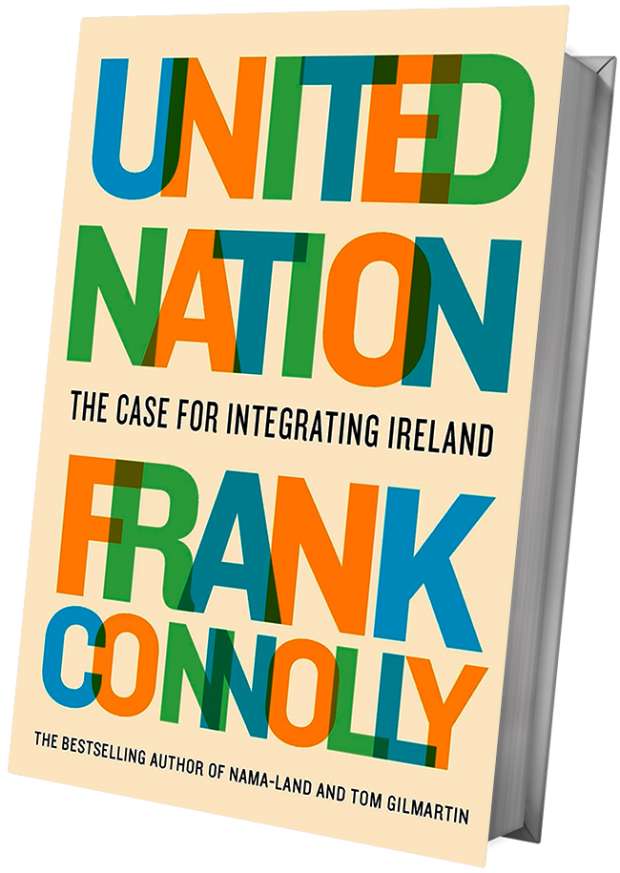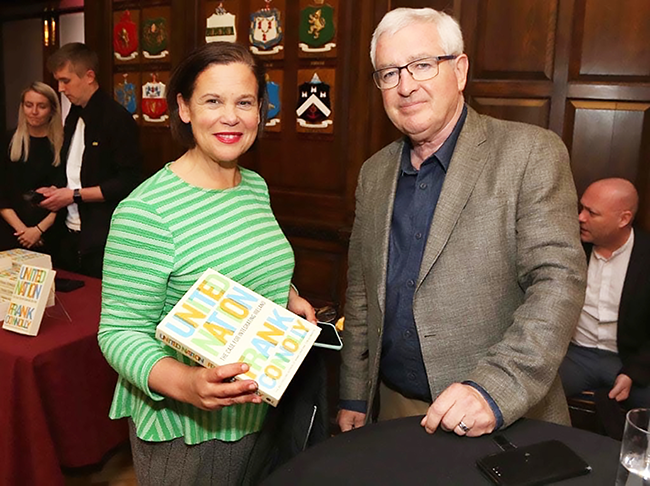4 August 2022 Edition
Challenges in the Irish Unity debate

Mícheál Mac Donncha reviews ‘United Nation - the Case for Integrating Ireland’ by Frank Connolly
• • • • • • • • • • • •
This is the most comprehensive book so far on the ever-growing debate on Irish Unity and the need for the Unity referendum as set out in the Good Friday Agreement.
At the opening of the book, the author quotes Roger Casement who described a nation as a river with many tributaries joining to form one great stream. The Irish nation is surely such a river, and our heritage is pre-Celtic, Gaelic, Viking, Norman with tributaries of Scots, English, Welsh all flowing through our history, joined now by streams from many other nations worldwide.
There is no such thing as a ‘pure’ nation and what binds people in a positive sense of nationhood - as distinct from a narrow nationalism - is not race or ethnicity but shared experience and a sense of community linked to a sense of place.
The other vital element for a modern nation is democracy. The demand for Irish Unity is based on the principle of self-determination, national democracy. The test of that is relations with other nations and states. And this is where the book begins because that’s what the Brexit crisis is all about as it affects Ireland. The vast majority in Ireland, including a majority in the Six Counties, want to decide our relationship with the EU ourselves and not to have it determined by England.

• Author Frank Connolly with Sinn Féin President Mary Lou McDonald
Brexit threw the fundamental contradictions and injustices of Partition into sharp relief. The threat to reimpose a hard border in Ireland rang alarm bells not only here, but in European capitals, in North America and among friends of Ireland everywhere. It proved to be the main stumbling block for the English Brexiteers in their push to get a favourable divorce from the EU. And it is far from over as the Tories and DUP try to overturn the Protocol which they themselves previously agreed.
Underlying the negative DUP-Tory axis is their veiled hostility to the Good Friday Agreement itself and their refusal to recognise change as manifested in Michelle O’Neill’s position as First Minister in waiting.
This is the political background so well filled in by the author, but there is far more to the book. He interviews a wide range of people from all walks of life and from across the political spectrum. Connolly tackles head-on the great challenges of Irish Unity - how to win the referendum, how to persuade more people of the necessity for unity, how to find a secure place for all, especially Unionists, in a United Ireland and the social, economic, and cultural shape of a New Ireland.
Proponents of the referendum have been saying for years now that we must prepare, that we must chart the way ahead and give a clear view of our ultimate destination and what that United Ireland would look like. And much work has been done in that regard, to which this book is a major contribution. But the Irish government still drags its feet, still refuses to put in place a Citizens’ Assembly, still blocks full engagement by the Oireachtas. That position cannot hold, and pressure must be kept up on the Irish government to fulfil its obligations.
The author is to be highly commended, as are those who engaged as interviewees and made the book possible. It should be used now as a resource in the widening debate and the expanding campaign for Irish Unity.
• Mícheál Mac Donncha has been a Dublin City councillor for Sinn Féin since 2011




